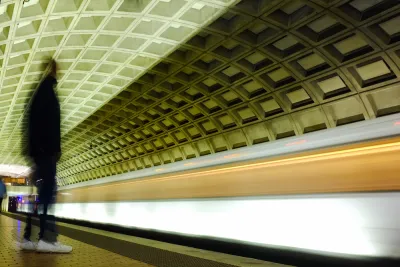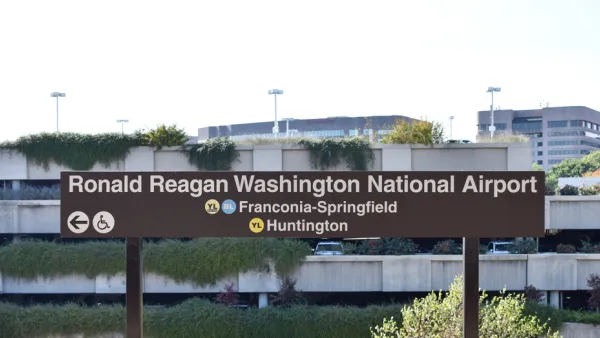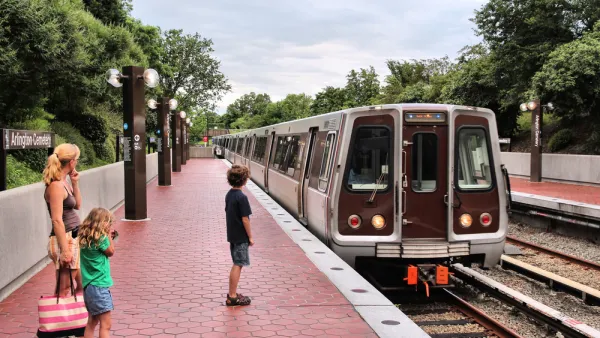Greater Greater Washington's "Metro Reasons" column analyses the latest ridership data from the D.C. Metro system. Riders have not returned to the system after the SafeTrack repair program concluded in 2017.

The Washington Metropolitan Area Transit Authority (Metro) released new financial data this week that sheds light on the ongoing decline of ridership on the transit system's buses and trains.
Stephen Repetski reports on the latest data, finding plenty to be concerned about. The dominant narrative, however, is that riders are not returning to the system now that the SafeTrack repair program has concluded:
Through the third quarter of FY 2018 (July 2017 through March 2018), the average number of weekday trips taken on Metrorail was 598,000, according to the agency — a 0.1% increase from last year during which SafeTrack shuttered portions of the rail system, but 2.1% below what Metro budgeted. Average weekday ridership in May 2017 was 612,000 while May 2016’s numbers were 639,000.
Repetski also focuses on the ridership numbers on the system's bus routes, also in decline, neatly following a fare increase at the beginning of the 2018 fiscal year. Metro bus ridership declined in larger numbers in Virginia.
FULL STORY: Metro Reasons: Metro’s bus and rail ridership has taken a dive

Analysis: Cybertruck Fatality Rate Far Exceeds That of Ford Pinto
The Tesla Cybertruck was recalled seven times last year.

National Parks Layoffs Will Cause Communities to Lose Billions
Thousands of essential park workers were laid off this week, just before the busy spring break season.

Retro-silient?: America’s First “Eco-burb,” The Woodlands Turns 50
A master-planned community north of Houston offers lessons on green infrastructure and resilient design, but falls short of its founder’s lofty affordability and walkability goals.

Test News Post 1
This is a summary

Analysis: Cybertruck Fatality Rate Far Exceeds That of Ford Pinto
The Tesla Cybertruck was recalled seven times last year.

Test News Headline 46
Test for the image on the front page.
Urban Design for Planners 1: Software Tools
This six-course series explores essential urban design concepts using open source software and equips planners with the tools they need to participate fully in the urban design process.
Planning for Universal Design
Learn the tools for implementing Universal Design in planning regulations.
EMC Planning Group, Inc.
Planetizen
Planetizen
Mpact (formerly Rail~Volution)
Great Falls Development Authority, Inc.
HUDs Office of Policy Development and Research
NYU Wagner Graduate School of Public Service




























